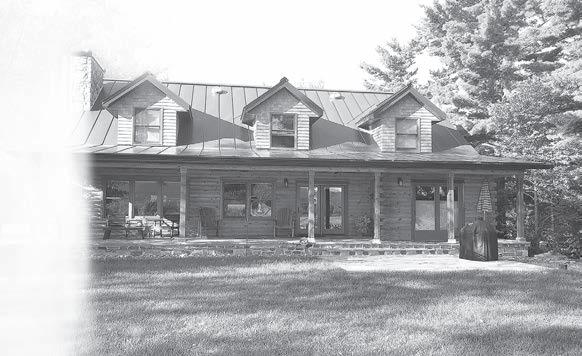
4 minute read
TEACHERS
the day a high-speed police chase ended in the parking lot, she has learned how to cruise through all kinds of chaos.
So Withers barely inches at the idea of teaching high schoolers at a time teaching has become an exceedingly stressful profession, particularly in history classrooms where polarizing political views have colored the lessons communities want educators to cover.
Clashes over curriculum give her all the more reason to dig her heels in while student teaching at Loveland High School, where she can tie a thread between decades of the past and today.
“I see history repeating itself,” Withers said, particularly in the past year as long-standing abortion rights have been under attack across the country, coinciding with her students’ look into the civil rights movement.
“It’s important for people to understand how things could be if we don’t protect certain rights,” she said. “People need to understand how we got to where we are, and I think they need to understand that they can have a role in it as well.”
In pivoting to teaching, Withers, 40, has traced her way back to her passion of history — the focus of her rst master’s degree, which she earned at the University of Kansas. ere, Withers gravitated toward teaching while working as a graduate teaching assistant and assistant instructor on the path to earning a Ph.D.
But she also worried that she would never make enough to support herself as a high school teacher.
Withers held down a part-time job at a Walmart at the time and veered away from her pursuit of a doctorate degree and was promoted while applying for other jobs. She found herself in retail management for a few years, working leadership roles at Sam’s Club and King Soopers locations throughout Colorado before stepping away at the onset of the pandemic, when her salary was cut by 25%.
Withers moved back in with her parents in Loveland and bounced through positions in o ce administration, management and human resources, but none of them brought her any closer to happiness.
She started to get serious about giving teaching a real try, and with her family’s nancial help, she returned to school for a second master’s degree in secondary teaching and a licensure in social studies at the University of Northern Colorado. A year later, she walked in the commencement ceremony and applied for her teaching license this month. In August, after Withers completes two more classes, she will receive her degree.
Withers student taught at Greeley West High School in the fall and also lled in as a substitute teacher before moving to Loveland High School this spring. She has shadowed and taken over social studies and U.S. history classes as well as helped out with economics and psychology courses.
Her search for a full-time teaching position spans beyond Colorado as she battles the state’s high cost of living and starting salaries that fall several thousand dollars short of the pay she earned in retail management and also trail compensation in other states.
“It’s important that we support our young people today in helping them to grow and to progress, and they’re the ones that are going to be out there running things soon,” Withers said. “I hope that I can help guide them on their way to that.”
An addiction and recovery specialist takes an accidental turn into an alternative school e rst part of Higgins’ career thrust her to the Front Range, where she became a registered psychotherapist and worked in and out of addiction, recovery and mental health, including a stint developing curriculum framed around anger management and life skills for court-ordered clients.

Hillary Higgins did not set out to teach, but once she stumbled upon an opportunity to work with kids at Red Canyon High School — an alternative school with two campuses in Eagle County — she couldn’t contemplate leaving.
Higgins, 35, moved back to Vail — where she grew up — ve years ago, ready for a change of scenery and eager to be near family again. A volunteer opportunity with a local nonpro t focused on stopping drunken driving connected her with Red Canyon High School by chance, planting her in the school to teach students life skills based on substance abuse prevention.
She was hooked almost instantly.
Higgins further tiptoed into teaching by taking over a consumer math class as a permanent substitute teacher at the school during the pandemic, shaking o her nerves over the idea of teaching a subject that has challenged her as someone with a learning disability. She had a chorus of educators rallying behind her who became the “catalyst” for her career in the classroom.
“ ey will stop and help you no matter what,” she said. “I felt so supported as a person who was teaching something I wasn’t very con dent in.”
Higgins, who already had bachelor’s and master’s degrees, decided to stay on even after the educator she was lling in for came back from maternity leave. Hig- gins returned to school, herself, at Colorado Mountain College to complete the alternative licensure program. She nished her last class earlier this month after two years of a grueling workload, balancing full days of teaching with night classes and writing papers on weekends.
“It’s made me a much better teacher because I’m empathetic to the student perspective,” Higgins said.
She added that she would not have made it across the nish line for a job in any school besides Red Canyon High School, where fellow teachers and administrators have motivated her every step of the way, even practicing exam questions for her licensure test with her.
She understands why teachers struggle to stay in education after she took a pay cut and has worked a second job at a ski and snowboard shop owned by her parents. But Higgins still sees herself supporting students who have more signi cant learning needs long term, particularly since she gets to teach them an array of psychology and sociology classes, including the psychology of reality TV and fashion psychology.
She has found a family in the students she nurtures and the educators who have believed in her, and the sense of purpose that grew from her days of subbing has stuck, leading her to a career she never saw coming.
“I felt like I had so much purpose being here,” Higgins said. “I really felt it was kind of a crazy thing that happened. I loved it.” e Colorado Sun co-owns Colorado Community Media as a partner in the Colorado News Conservancy. It is a reader-supported news organization dedicated to covering the people, places and policies that matter in Colorado. Read more, sign up for free newsletters and subscribe at coloradosun.com.








